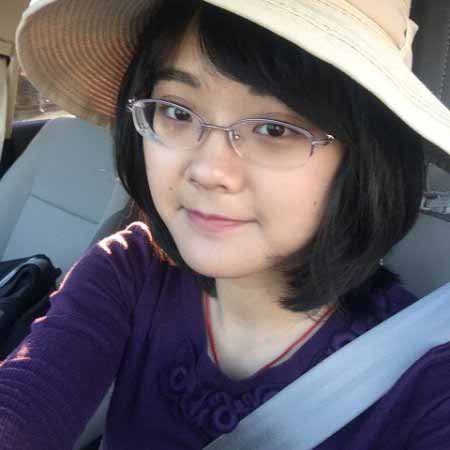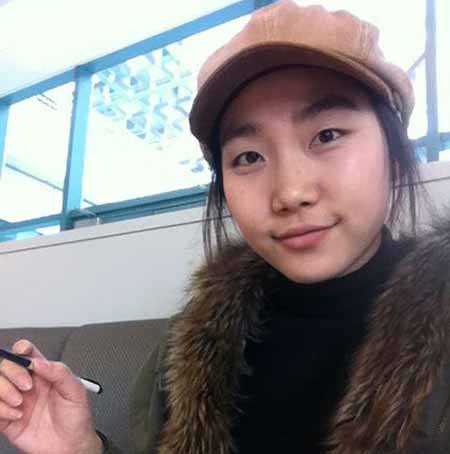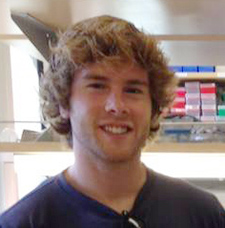Alumnus David Goeddel Funds Fellowship for Next Generation Scientists
Published Date
By:
- Sherilyn Reus and Jade Griffin
Share This:
Article Content
When University of California, San Diego alumnus and biotechnology pioneer David Goeddel, ’72, pledged a gift of $400,000 to establish the David V. Goeddel Endowed Graduate Fellowship at UC San Diego, his goal was to support and foster the innovators and scientists of the future. The endowed fund, which will be matched in full by the UC San Diego Division of Biological Sciences, will annually support the research and scholarly activities of outstanding Biological Sciences graduate students. The inaugural Goeddel fellowship recipients will use the funding to bolster leading-edge research focused on topics ranging from finding better treatments for diseases such as Parkinson’s, to understanding the metabolism of cells in tissues and organs, to studying cyanobacteria as a bio-production platform for renewable fuels.
“We are very grateful to David Goeddel for his generosity in supporting top graduate students as they work to address some of our world’s most pressing issues with their research,” said Bill McGinnis, dean of the Division of Biological Sciences. “Fellowships, like this one, play a key role in allowing the division to fulfill its mission of creating the next generation of scientists, physicians, medical researchers and educators who will make a positive impact around the globe.”
Goeddel graduated from UC San Diego in 1972 with a degree in chemistry, and went on to earn his doctorate from the University of Colorado, Boulder. In 1978, he became the first scientist hired by Genentech. While there, he successfully used genetic engineering to coax bacteria into creating synthetic human insulin, human growth hormone and human tissue plasminogen activator (tPA) for use in therapeutic medicine.
“I truly understand the need for these funds now more than ever and how they can assist our students and faculty,” said Goeddel. “I am pleased to be able to support graduate education at UC San Diego.”
This year, three UC San Diego biology graduate students have been chosen as recipients of the David V. Goeddel Endowed Graduate Fellowship based on their scientific achievements and potential for research impact. The doctoral students include:
Ruichen Sun

A third year Ph.D. student, Ruichen Sun focuses her scientific research on short-term memory and decision-making—the behavioral process of choosing between at least two options. Many neurological diseases, including depression, anxiety and Parkinson’s disease, are commonly manifested with impaired decision-making. To better understand these cognitive impairments, Sun utilizes the fruit-fly as a model, looking at the fruit-fly’s brain circuitry and underlying molecular mechanisms. “I am very grateful for this fellowship award,” Sun said. “It has provided me with the funding to attend relevant learning and memory workshops, and it allows me to focus on my research project.”
Dong-yeon Daisy Lee

Nitrogen is an essential molecule for cells. Although regulation of nitrogen metabolism is well studied in cultures where cells are mixed together, how nitrogen metabolism is regulated when cells live in spatially organized communities remains unknown. Graduate student Daisy Lee’s research is expanding our knowledge of metabolic regulation to include structured cell communities, such as those found in tissues or organs. By using cutting-edge time-lapse microscopy techniques, Lee determined differing cell communities have varying needs for nitrogen, due to increased or decreased access to nutrients. Lee is grateful for the fellowship award, which will allow her to attend conferences to exchange her ideas with other scientists. “I will also be able to learn from others’ work and broaden my perspectives beyond my thesis projects.”
Benjamin Rubin

Cyanobacteria are major contributors to the Earth’s oxygen-rich atmosphere and they make up a substantial portion of its green life. In addition to being used to understand fundamental processes such as photosynthesis, cyanobacteria are currently being developed as production platforms for renewable fuels, chemicals and pharmaceuticals. However, the understanding and use of cyanobacteria as a bio-production platform has been hampered by a lack of understanding of the complete set of genes and pathways important to the organisms’ survival. Graduate student Benjamin Rubin created a novel collection of 250,000 cyanobacteria mutants to identify portions of the genome essential in a model cyanobacterium. According to Rubin, “Awards like the David Goeddel Fellowship allow room to participate in events, as well as to purchase tools that are important for the development of young scientists—things that might not be included in a lab’s budget.”
As an endowed fund, the David V. Goeddel Endowed Graduate Fellowship will provide support for promising scholars and researchers in perpetuity. “I look forward to impacting the students in Biological Sciences and receiving the updates on the student accomplishments from this fellowship program,” said Goeddel.
He is a longtime supporter of the university and a current member of the Biological Sciences Dean’s Leadership Council. Following his tenure at Genentech, Goeddel co-founded the biotech company Tularik in 1991, which was acquired by Amgen in 2004. He served as Amgen’s first senior scientific vice president until 2006. Today, he is managing partner at The Column Group, a health care venture capital firm.
Goeddel has received numerous scientific awards including the Scheele Medal, the Eli Lilly Award in Biological Chemistry, the Inventor of the Year Award, the Jacob Heskel Gabbay Award, the Howley Prize for Arthritis Research and the Warren Alpert Foundation Prize. He is a member of the National Academy of Sciences and the American Academy of Arts and Sciences.
Fellowship support plays a significant role in UC San Diego’s ability to attract and retain top graduate students who are fueling new research and discoveries at UC San Diego. To learn more about the impact of private support in the Division of Biological Sciences, please visit biology.ucsd.edu/giving.
Share This:
Stay in the Know
Keep up with all the latest from UC San Diego. Subscribe to the newsletter today.



